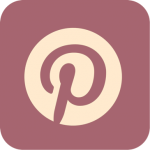With so many options to get your brand on social media, where should you focus your efforts?
Your customers are on social media. Your business needs to be, too.
But with so many platforms to choose from, the question is, where should you be? With a handful of major social players and many more for niche communities, it’s easy to get overwhelmed by the options to get your business on social media.
The good news is, you don’t need to have an account on every single site. Instead, start with these questions:
- What are your primary audience demographics?
- What are your goals for being on social media? — lead generation, brand recognition, influencer marketing, etc.
- How much time do you have to dedicate to social media management — responding to customers, interacting with followers, growing your audience, etc.?
- Are you a B2B (business-to-business) or B2C (business-to-consumer) company?
This information will help you target the most effective social platforms for your purposes. It’s far more important to be active on the platforms where your customers are than to have a bunch of accounts “just because.”
Here’s a run-down of the biggest social platforms with a few of the salient pros and cons to consider as you set up your company’s social media presence.

With a reported 2.3 billion global active users, Facebook is the undeniable social media behemoth. With this kind of social leverage, it’s difficult for businesses to get around having a Facebook account.
Luckily, Facebook is well-suited for just about any type of business, from dining to retail to hospitality. The site’s many features can essentially turn a business page into a mini-website.
On the other hand, Facebook’s features are so powerful that they are quickly overwhelming and may require additional training or outsourcing to be effective.
Demographics
- Facebook user demographics well represented across all age brackets, genders, income levels and educational backgrounds
Good For...
- Nearly any industry
- B2C
- Giving insight into your business, sharing relevant articles, promoting sales & events
Pros
- Can display special features such as menu, list of services or even an online shop
- Integrates with popular e-commerce platforms (Shopify, WooCommerce, Big Commerce)
- Powerful advertising options with low buy-in amounts and invaluable analytics tools
- Free events listings are ideal for many types of locally owned businesses
Cons
- Additional training is often required to get the most out of your profile
- Targeted advertising tools are complicated
- Difficult to be seen and heard; business posts and ads are mixed in with posts of followers’ friends, family, news and entertainment
- Difficult to gain organic followers for many small- and medium-sized businesses
Verdict: Yes
The ubiquity, ease of use, free/inexpensive promotion options and informative analytics tools make Facebook a must for nearly every business.
Related: The 6-Step Plan for Addressing Negative Facebook Posts

This popular social media site is easy to use and features an engaged user base accustomed to communicating directly with brands. B2C companies with a strong brand voice can really shine on Twitter. Likewise, the most effective brands on Twitter regularly interact with other Twitter users via mentions and retweets — which is fun but time-consuming.
A Twitter fan can take your brand name viral; a detractor can wreak just as much havoc in an instant.
Demographics
- 18-29-year-olds (40%). Equal representation between male and female. (Source)
Good For…
- B2C — 85% of small- and medium-business users use Twitter for customer service
- Short, time-sensitive updates, promoting sales & events
Pros
- 240-character limit means statuses can be direct and uncomplicated
- Companies can directly mention users in their tweets
- Hashtags help potential customers or brand ambassadors find you
Cons
- Hashtags may pose a learning curve
- Highly engaged user base can cause damage to a brand’s reputation
- Interacting with users and regularly retweeting is time-consuming
Verdict: Maybe
Twitter is great for quick, time-sensitive updates. If your company has a distinctive brand voice (Wendy’s is a famous example), is active on social media, has a younger demographic and is willing to quickly read and respond to tweets, then yes. If your company is risk averse or does not want to spend the time to be highly engaged, then no.
Related: The Dos and Don’ts of Social Media Hashtags

Owned by Facebook, Instagram is a visually centered social platform; status updates all require a photo or video. Like Twitter, Instagram uses hashtags, which is great for gaining followers specifically looking for products or services like yours. Instagram’s Stories feature is a popular way to post an update that disappears after 24 hours, which some companies use for promotions.
Demographics
- 18-29-year-olds, largely female (Source)
Good For…
- B2C, influencer marketing
- Visual-based, lifestyle, product brands
- Behind-the-scenes insight into your brand
Pros
- Facebook ads can run simultaneously on Instagram
- Very easy to set up and use
- Fairly easy to gain organic followers with regular use
Cons
- Most effective with high-quality photography
- Geared almost entirely toward mobile users
Verdict: Depends
Businesses that are highly visual such as artists, restaurants, travel destinations, stylists and clothing shops (to name a few) are well-served to be on Instagram. Instagram is good for businesses that want to engage fairly regularly. Manufacturing and B2B can usually skip this one.
Related: 3 Ways to Curate Content for Your Social Media Channels

This platform is specifically for professional networking — no foodie photos or videos of your kid’s birthday party here. LinkedIn groups for specific industries/professions are excellent for interacting as a leader in your field or recruiting top talent. LinkedIn is good for publishing industry-specific articles and communicating company culture information. Companies with multiple employees and interesting corporate news can gain some attention here.
Demographics
- 30-49-year-olds (33%), 50-64-year-olds (24%). Equal representation of genders. Average income of $75K+ (Source)
Good For…
- B2B
- Recruiting talent
- Sharing industry-specific insights and articles
Pros
- Not a lot of competing noise — LinkedIn has a specific purpose and fewer users
- Ideal for posting jobs and finding qualified talent
- Excellent opportunity to emerge as a leading voice in your field amongst your peers
Cons
- Analytics are not nearly as powerful as Facebook
- Mainly for building brand awareness, recruiting and job posting; not for consumer sales
Verdict: Depends While it’s common for career professionals, corporations and job seekers to have a LinkedIn profile, the average small business does not need one. However if you are B2B in manufacturing, or are positioning yourself as an industry-leading expert, then LinkedIn may be a good fit.

Another visually centered social media site, Pinterest is the darling of recipe collectors, wedding planners, fashionistas and DIY-ers. Users “pin” pictures and videos to “boards”, or collections of pins centered around a topic.
Rich Pins and Promoted Pins give businesses powerful selling and advertising options. Although Pinterest is smaller than other social sites, users are highly engaged, more educated and boast a higher-than-average income. Notably, 87% of users have purchased a product because of a pin.
Demographics
- 18-49-years-old, largely female, equally distributed among urban/suburban/rural (Source)
Good For…
- B2C
- Lifestyle brands, food and clothing brands
Pros
- User demographics are desirable for many businesses
- Promoted Pins can be repinned by users, acting as free advertising
- Great for showcasing visually engaging products
Cons
- Businesses should also act as users, so can be time-consuming and labor-intensive
- Not ideal for businesses with a primarily male customer base
Verdict: Depends
This is completely dependent on the nature of your business. Highly visual companies in an industry that is well-represented on Pinterest (beauty, fashion, food, fitness, home, travel) can do very well. Otherwise, probably not.
Next Steps for Setting Up on Social
This overview can help your company narrow your online efforts, but it’s hardly exhaustive. Your company’s unique products and services, customer demographics and even regional market will also factor in to which social sites you should be active on.
Social media engagement is just as important as other forms of marketing and advertising. But with limited time and resources to do it all, many businesses need to be laser-focused on the most effective platforms for their goals.
Part of Integritive’s digital marketing strategy is to perform a social media audit to help your company use your online time wisely. We’ll determine the best social platforms for your business and give you an idea of what to post on each one. In conjunction with our audience research, competitive analysis, website audit and search engine marketing (SEM) strategy, we’ll have you positioned for social success. Drop us a message to get started with a free consultation!





